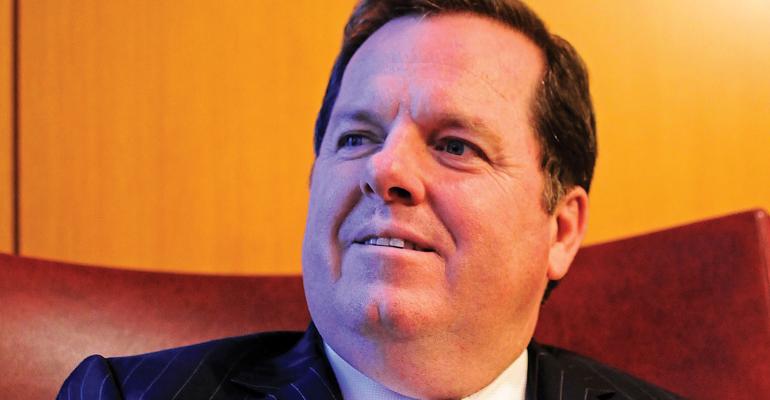When I think back to where I was in the late 1980s, some memories feel like a lifetime ago, while others are as fresh as if they happened yesterday. I can vividly recall sitting at the trading desk of an investment advisory firm, learning as much about the industry as I could and developing relationships that would prove to be important throughout my career. Day-to-day business was done in a different way then. I spoke to clients and partners by phone or in person, and trades and transactions were largely executed on paper.
What was true in 1990 remains true in 2015: There is still a need for financial advisors to build and sustain a trusted and valued relationship with their clients. However, what has most changed is exactly how those relationships are developed.
Twenty-five years ago, the advisor-client relationship was simpler, and largely one-dimensional. Financial advisors targeted certain financial goals, such as meeting or exceeding a predetermined benchmark, and their success was mainly measured on their ability to achieve those objectives. Wealth managers focused almost exclusively on investing client assets and were measured only by relative or absolute market outcomes.
Today, wealth management embraces a far broader mandate. Investing is still an important part of most client relationships, but now a good financial advisor is able to provide holistic guidance around a client’s major life decisions. No longer judged on financial returns alone, today’s advisors seek customized outcomes based on each client’s unique situations, goals and preferences.
For many, that process starts with a comprehensive plan that helps to understand, shape and formalize a client’s life goals and the pathways toward achieving them. A good plan should convey a client’s own definition of success, financial and otherwise.
In terms of customized outcomes, we all know that client needs and preferences can vary widely from one person to the next. But, like in most other aspects of life, the details are most important. You can have two clients with the exact same wealth, family situation and personal profile, but they are likely to have significantly different financial plans that address their own priorities. Today, good financial plans are more sophisticated and more inclusive than ever before, looking at things far beyond banking and investment accounts. Philanthropy, lending, credit, insurance, estates and trusts are increasingly becoming part of many plans.
As the industry evolves, client personalization will be an ongoing focus for the most effective financial advisors. Technology will play an important role, as powerful tools to deliver information, understand behavior and execute transactions become safer, more mobile and more widely adopted. There’s one caveat: Client segmentation matters here; technology that is seamlessly integrated into one client relationship may have little use for a client with a far different profile.
Going forward, I expect financial advisors to take a more important role in client decision-making. As our lives become more complex and as borders continue to dissipate in a truly globalized world, clients will need expert guidance to envision, determine and execute a plan that will help them achieve their goals and improve their lives.





